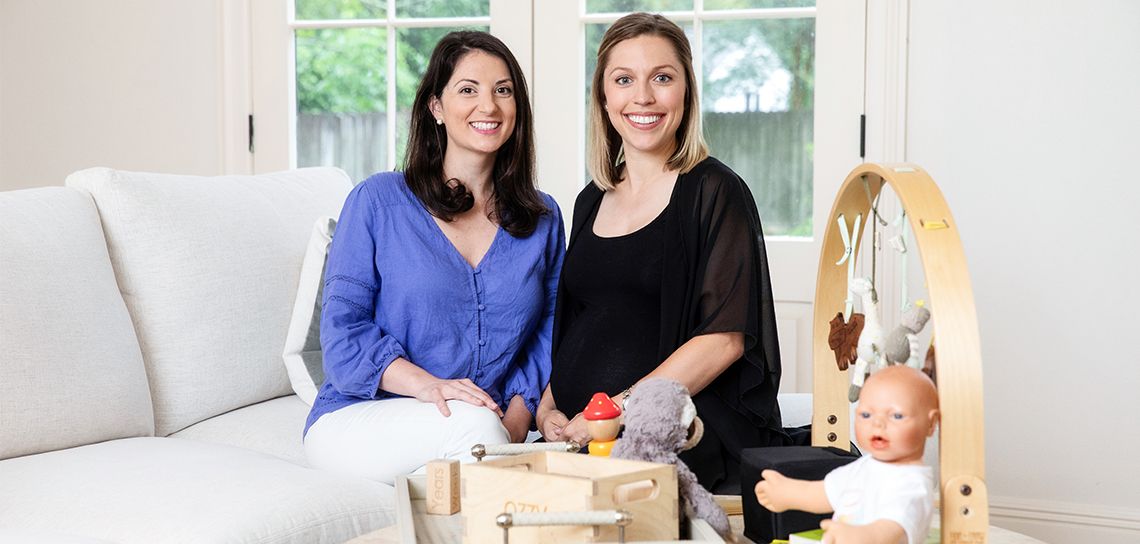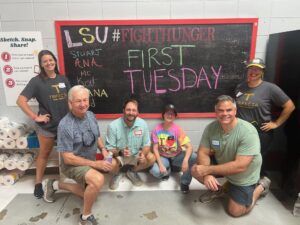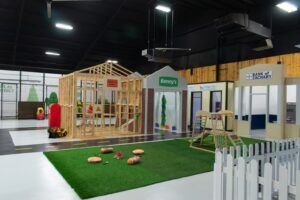
Stork support: A new endeavor promises to help families through birth and beyond
In ages past, expectant parents often lived in villages, small towns, or close-knit neighborhoods, where mothers, aunties, sisters and lifelong friends were nearby and available to share what they knew about giving birth, feeding babies, and making the seemingly countless small decisions that build new families. Sometime in the last few generations, though, things got a little bit more complicated.
Mothers and fathers today have more choices than ever on how they want to birth, feed and care for their children. Add to that the ebullient and always shifting information flowing, 24/7, from the internet, and the growing geographic space between families driven by career trends, and you’ve got fertile ground for crisis. The moment that pregnancy test comes back positive or that adoption application is approved, a potent cocktail of fight-or-flight chemicals can kick in, sapping expectant and new parents.
The answer: A new demand for experts on birth and parenting who can smooth the transition into parenthood and beyond.
In Baton Rouge, Stork Maternity Consulting connects moms- and dads-to-be with quality, caring birth and parenting professionals. The company was created in 2013 in Austin by Baton Rouge native and maternal/child health nurse Leah Frederick. She wanted to bring her brainchild to Baton Rouge, but only if she could deliver it into capable, caring hands.
Enter her childhood friend Alexandra McCall, a nurse specializing in pediatric intensive care, who worked at the Mayo Clinic before moving back to Baton Rouge and embarking on this career change that she hopes will also change lives in the Capital City.
“In almost every country in the world, a village comes forth to support the woman,” says McCall.
Stork is active in connecting expectant families with professional labor, birth and postpartum mentors called doulas. Birth doulas provide continuous physical and emotional assistance during labor, delivery and the immediate postpartum time, while postpartum doulas, who have extensive knowledge of newborns, also can do everything from light housekeeping, cooking and laundry—yeah, there’s a lot of that—to tending to siblings or rocking the baby while parents sleep. Postpartum doulas are experts at spotting the signs of postpartum depression, too, and that’s good, since it’s a potentially dangerous condition that often goes undetected.
The cost of a doula fluctuates depending on a variety of factors, but it very well might be priceless. Science, after all, backs up the impact of their support. According to Doulas of North America (DONA), the certifying organization that trains and advocates for doulas and their families, doula-supported women are 28% less likely to have a cesarean section. What’s more, studies show that most women remember their labor and delivery experiences decades after their children are born, and how those situations play out can have a lifelong impact.

“We say, not just a baby is born, a mother is born, too,” McCall says.
Stork also has a team of childbirth educators to help families prepare for birth and baby care, lactation consultants to help with breastfeeding and pumping, safety experts, nanny recruiters, massage therapists and interior decorators. The company works with adoptive parents to help them prepare for and tend to their babies. Classes can be held in clients’ homes, at Stork’s office or at the Birth Center of Baton Rouge, located next to Woman’s Hospital.
McCall is an energetic, articulate advocate for her clients, but she’s quick to emphasize that Stork and all of its consultants take a nonjudgmental approach to helping families. In other words, if you’re the kind of parent who wants an epidural ASAP, Stork is eager to help you. If you’d prefer a more independent approach, they’ll gladly navigate that, too.
Stork client Emily Friddle recently hired the firm’s breastfeeding consultant to come to her home for a tiny class that included just her, her best friend (who wasn’t sure if she even wanted to breastfeed), and their husbands.
“We’re completely different,” Friddle says of her friend. “I’m doing it at the Birth Center, and she is gung ho and knows she wants to get an epidural.”
Lactation consultant and nurse Lindsy Cordell was able to meet both families’ needs and to educate them on a broad range of topics that influence breastfeeding.
“I thought I knew a lot already,” says Friddle. “But she taught me so much.”
Friddle’s friend, by the way, became enthusiastic about breastfeeding by the end of the class. Feeling supported and informed, she found solutions where before she felt there were only obstacles. That, McCall says, is the guiding principle behind her vocation. “There needs to be a tribe of women who help each other out.”
Stork can send lactation consultants to help mothers, even in the middle of the night. If they can’t get there in person, they’ll do a video support call so they can see what baby and mom are doing, and offer suggestions and answer questions to help ease the learning curve.
When it comes to growing families, she adds, the birth process tends to get all of the buzz. Once the baby is earthside, though, moms often need just as much, if not more, help.
“There is pressure to be the perfect woman, to go back to work and also to be a Pinterest mom,” McCall says. “It’s an unrealistic view.”
One exciting trend she says she is noticing is the giving of postpartum doula services to new mothers by relatives.
“If your daughter-in-law is having a baby and you feel uncomfortable helping, you can gift her a postpartum doula,” says McCall. That’s especially helpful when family lives too far to come over and help out. “We had a grandmother call us and say, ‘My daughter needs help.’”
On a recent visit to Baton Rouge, Frederick reflected on her experience in Austin guiding this organization and mission. She expects it will catch on in Baton Rouge, just as it has in her new home.
“The growth I have witnessed astounds me daily. I have to pinch myself at times because I can’t believe what has blossomed from my knowledge and efforts over the past six years. I never truly thought my company would be as successful as it is today,” Frederick says. “The fact that we have positively impacted so many new and expecting families’ lives, and that we are the go-to for prenatal, birth and postpartum in Austin has exceeded my expectations.”
She notes that Stork is the first of its kind in Baton Rouge. But they are starting to see a health trend here, where more families are eductating themselves about self-care and learning more about their options. The biggest challenge is letting people know just how much they and their families can benefit from having someone they know and trust—who is also highly trained and objective—on call to help with prenatal, birth and postpartum care.
Friddle is keeping Stork’s phone number in her phone, just in case she feels overwhelmed. And that gives her a lot of peace of mind as she prepares to give birth.
“A mom’s and a sister’s opinions are different from someone else’s,” she says. “I don’t need a thousand opinions. I just need someone who is going to support me.”











